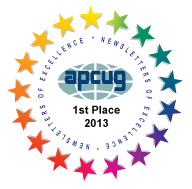I spent many years purchasing and building a library of over three thousand volumes which are all cataloged and shelved in Dewey Decimal order. I literally trained at least five people on computers and off the welfare roles. They needed practice and I needed the library organized. Since going digital, I have only used a few. It is time to donate my library to others who will actually use the books.
I can do much more research and do it faster with eBooks. I have a much smaller library of eBooks. However, I use them much more, because I do not have to literally "cut and paste" the contend or even type the text, like I did in school. There are many other advantages which I will mention later.
Many "purists" insist on having a physical book to read, underline, highlight, annotate, carry and shelve. They do not realize all those functions and much more are available today. If you use as many books as I do, they also must consume a massive amount of space. The literary dinosaurs will not fade away quickly, but it will be sooner than they think.
Saving the trees, conservation of other resources, limited space, convenience of use, speed of access, and many other features have made me an almost strictly digital reader. The local newspaper is on line, so I have made it my Internet home page. In addition, I have Google Alerts that direct me to articles of interest to me. AND, I do not have ink rubbing off the pages and onto my fingers.
Over the years we have seen all sorts of digital document readers come and go. Personally, I have no need for an additional device, because my Palm OS Treo 680 device already serves as a document reader. I often wished all my textbooks were digital, especially in graduate school. The books were so expensive. They were also intellectually and physically HEAVY!
Many believe that eventually eBooks and reading devices will become popular enough to replace the market of the printed copy. Today, many brick and mortar bookstores have closed because they cannot compete with Amazon. com. Now that many eBooks are also available, even Amazon is changing.
In the meantime, here is an explanation of software and hardware.
Readers for eBooks have been around since the late 1990s. Some of the early devices actually looked like a book on t h e outside. Like the early Palm OS and Microsoft Mobile Personal Data Assistants (PDAs), these early screens did not have enough contrast for most readers and thus, they are no longer with us. You might find an old device cheap, but most people have abandoned them for the newer devices.
My very first exposure to an eBook Reader was a Franklin that only contained translations, with separate modules for each language, much like the modules for a Nintendo. The screen was very small and displayed two or more lines depending on the font size.
Eventually, Franklin realized this device must be small enough to store in a pocket and have a much larger screen. Though it had a green screen, single stroke character recognition, and several other PDA functions, eventually the Franklin eBookMan EBM-900 series was born.
The device had its own proprietary OS (operating system) and all the data was lost if there was an interruption of power. They added an SD slot for eBooks on Secure Digital cards. They are no longer produced. You might find one through eBay. There are some old die-hard users still today.
Some say it died from a lack of marketing, short battery life and proprietary OS, but with so many newer and better devices that we will look at in future articles, those issues only caused the death to come sooner than later.




